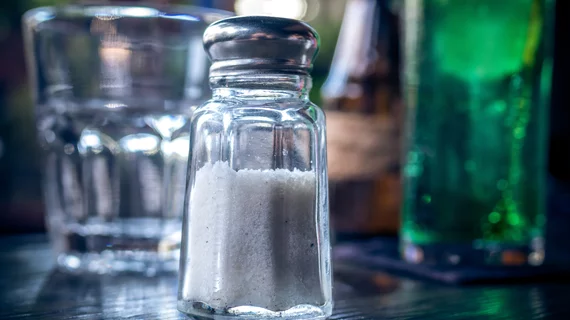FDA hopes new guidance will prove ‘one of the most significant public health nutrition interventions in a generation’
The U.S. Food and Drug Administration has released final guidelines to help Americans reduce their intake of sodium.
Aimed at food manufacturers, chain restaurants and food service operators, the document offers target sodium levels for some 163 categories of processed, prepared and packaged foods.
Compliance is voluntary, but it’s likely that support for the guidance’s main messaging will be insistent across traditional media outlets as well as social media platforms.
“The FDA is committed to playing its part with the tools available to us to help create a healthier food supply, promote healthy habits early and empower consumers to make healthier food choices,” Janet Woodcock, MD, and Susan Mayne, PhD, state in an Oct. 13 press release. Woodcock is acting FDA commissioner. Mayne is director of the agency’s Center for Food Safety and Applied Nutrition.
“Many of our federal, state and local partners also have initiatives underway that support sodium reduction and help people achieve healthier eating patterns overall,” they write. “If we act together, we can have a profound impact on the health of millions of people.”
The American Heart Association immediately sent out word expressing enthusiasm for the newly finalized guidance.
In fact, the association urged the agency to do even more:
The FDA’s targets represent an important step forward, but lowering sodium intake to 3,000mg per day is not enough. Lowering sodium further to 2,300mg could prevent an estimated 450,000 cases of cardiovascular disease, gain 2 million quality-adjusted life years and save approximately $40 billion in healthcare costs over a 20-year period. We urge the FDA to follow today’s action with additional targets to further lower the amount of sodium in the food supply and help people in America attain an appropriate sodium intake.”
Click here for the full FDA guidance, here for its press release and here for the American Heart Association’s statement.

